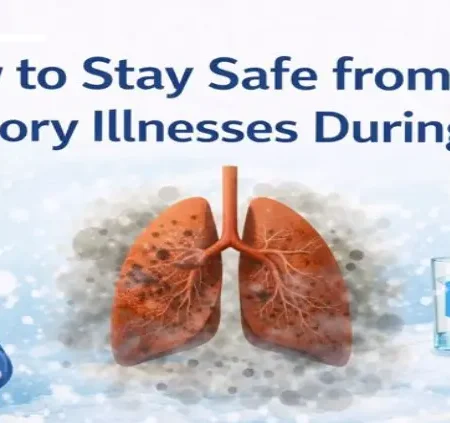
Breathing is a natural and automatic process, but weather or seasonal changes can make breathing a little more difficult. Being aware of weather and seasonal changes and how this impacts your breathing can help you take proactive steps to prevent your lungs from being overly stressed and have better respiratory health all year.
The Impact of Temperature on Breathing
Extreme temperatures, either high or low, can affect the ability to breathe. Cold air (especially when dry) may irritate the airways, triggering coughing, wheezing, and breathlessness. Asthmatic and chronically lung-diseased people tend to have symptoms exacerbated during the winter season due to the constriction of the airways caused by the cold air.
Stuffy weather can make it difficult to breathe for some people, particularly those with heart and lung disease, because the body has to work harder to maintain the right amount of oxygen in the system.
Seasonal Allergies and Respiratory Health
These allergens can make you sneeze, cause nasal congestion, make your eyes itchy, and sore throat. In asthmatic patients with chronic respiratory illness, allergens may cause an exacerbation of symptoms.
The season change may produce heating or cooling systems to stir up dust, mold, and pet dander inside the home. In allergy season, you can protect your respiratory system by using high-quality air filters and cleaning tools, and by limiting your exposure to known allergens.
Humidity Levels and Their Effects
The level of moisture in the air is a major factor in comfort in breathing. This may lead to irritation, difficulty clearing mucus, and a tendency to infections.
On the contrary, overly moist air can be stifling and can aggravate the breathing of asthmatic people or those with chronic obstructive pulmonary disease (COPD). Moist conditions lead to the proliferation of molds, dust mites, and airborne bacteria, all of which may contribute to breathing problems. Having an indoor humidity of 40-60 percent is the best way to have comfortable and healthy breathing.
Air Pollution and Seasonal Variations
The concentration of such pollutants as smog, and particulate matter can be affected by seasonal changes. For example:
- Winter: During the winter, air is stagnant and cold, which holds pollutants near the ground, creating winter smog that can agitate the lungs and exacerbate asthma.
- Summer: Ground-level ozone is elevated and may cause coughing, chest tightness, and reduction of lung function.
- Spring/Fall: The equal presence of pollen, other allergens, and air pollution within the city places the sensitive population at risk for the onset of breathing difficulties.
Breathing difficulty may be prevented by monitoring local air quality reports and by limiting time outdoors for children on days when pollution levels are elevated.
Tips for Protecting Your Respiratory Health Through the Seasons
- Wear accordingly: When the weather is cold and wet, cover your mouth and nose with a scarf to warm and humidify the fresh air you breathe.
- Install air purifiers: It is crucial to maintain clean indoor air, especially during seasons with high pollen or pollution levels.
- Keep hydrated: When sweat membranes are kept wet, they assist the respiratory system in getting rid of irritating elements.
- Check air quality: Do not exercise outside on a day when the air is highly polluted or has high levels of allergens.
- Follow preventive care: Take your seasonal management plan with your healthcare provider, whether you have asthma or COPD.
- Control the humidity of the house: Install humidifiers or dehumidifiers as needed to maintain comfortable indoor air quality.
The seasons and weather directly affect the level of comfort in breathing. The change of the lung functions can occur due to cold air, heat, humidity, seasonal allergens, or pollution, and can be accompanied by the feeling of discomfort or by the worsening of the current respiratory illness. With such knowledge of seasonal triggers and preventive measures, you will save your respiratory health and enjoy the outdoors regardless of the weather.
Be smart, be environment conscious, and take good care of your lungs because after all, each breath counts.


